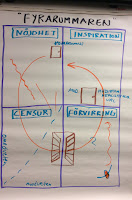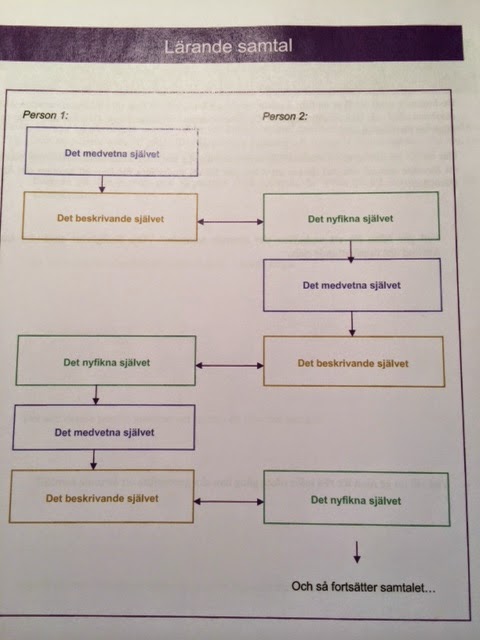Effective versus efficient communication
What is effective communication? And in what aspect does it differ from efficient communication?
I did a Google search (effective versus efficient communication) and these are some highlights from what I found:
Firstly (my own exformative formatting):
Secondly (my own exformative formatting):
Thirdly (my own exformative formatting):
My conclusions regarding the difference between effective and efficient communication using the exformation concept:
I did a Google search (effective versus efficient communication) and these are some highlights from what I found:
Firstly (my own exformative formatting):
When it comes to communication, becoming more efficient may mean becoming less effective. This is more than a clever play on words; it's an important issue that every business owner must address.Read the full article in remodeling magazine.
As our pace of life continues to increase, our natural tendency is to seek more efficient ways to communicate. We send an e-mail rather than make a phone call. We leave a voice mail rather than have a conversation. We call or e-mail instead of stopping by to chat face-to-face. Although these may appear to be more efficient ways to communicate, they may actually be less effective than the methods they replace.
A blend of real human interaction is required for a truly successful outcome. It won't happen by itself, but it doesn't take much to add a personal touch. At the end of the day, your clients and your team will judge you more on the experience than on the information.
Secondly (my own exformative formatting):
Effective communication clearly expresses the objective that it's intended to do. No matter how long the communication is but if it reaches the targeted audience clearly it is called effective communication. On the other hand efficient communication is one which is short and crisp. Efficient communication is likely to be quick and to the point. But an efficient communication can also be effective. Therefore effective communication gives more importance to conveying the point to the listeners whereas efficient communication gives importance to the amount of time taken in communication.Read the full article in associated content.
Thirdly (my own exformative formatting):
For words to be effective, they have to communicate in a way that influences the ones receiving them. Sometimes this is accomplished efficiently, in just a few words: "Help!" or "Stop!" But for the most part, less is not more, and efficiency is a detriment to effective communication.Read more at LiveStrong.com (Lance Armstrong Foundation)
A How-To on Effective Interpersonal Communication:
First establish contact. Start by using body language and tone of voice to convey sympathy, understanding, authority...whatever the underlying message is to be. Maintain eye contact and respond thoughtfully to the receiver's messages. Normal people feel respect for people who respect them. Make sure your message is considered and well founded. If you don't know something, admit it. This helps to establish credibility. Address the receiver's desires and concerns. Use pauses to give the receiver a chance to give feedback or ask a question. Reflect what you've heard from the receiver to be sure there is mutual understanding. Validate the receiver's needs, desires, concerns. If the subject is volatile, it may help to use "I" statements so the receiver does not feel accused.
My conclusions regarding the difference between effective and efficient communication using the exformation concept:
Efficient communication is focusing on sending out an optimized & minimal amount of information to the targeted recievers BUT effective communication is focusing on producing the optimal amount of information to reach an understanding among the targeted receivers MEANING that exformative communication is happening when exactly enough information is sent from sender to activate full understanding "exformation" at the targeted recievers.Close, but no cigar... yet!




Well put Marten! I want to add a twist to your definition of effective communicatation having an influence on the receiver. This influence may be conscious or unconscious and may or may not align with our conscious agenda.
SvaraRaderaFor example, there are times when I've said something with one intent that had a great positive impact but was received in a way that was totally unexpected on my part...and regretably, the opposite effect sometimes happens as well!
Thanks Steve for your comment,
SvaraRaderaI think the impact of the unconscious makes it really difficult to perform effective communication in larger groups, because individuals have so different background and experiences...
/Mårten